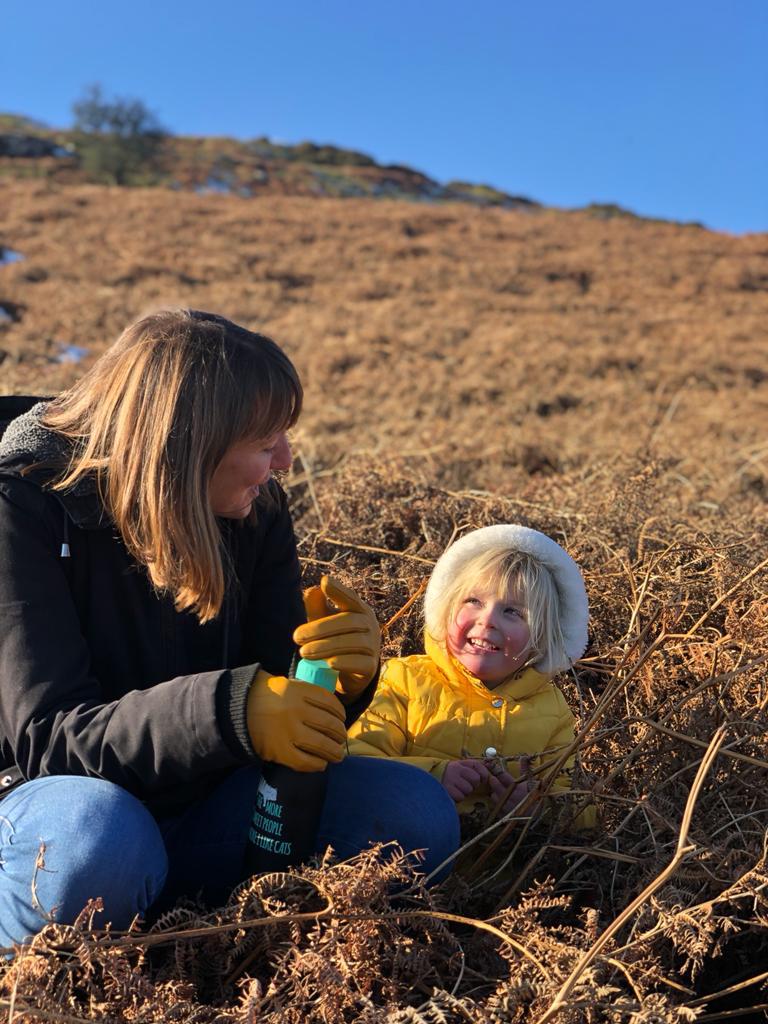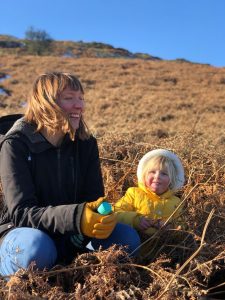‘It’s in childhood that most people have their first spiritual experience; that of an innate and natural link to the sacred. The joy, the clarity of mind and the curiosity that we’ve known can become the starting point of a marvellous rediscovery. If our relationship with our parents is imbued with love and respect, it will serve as a model and a foundation, and all of our other relationships will also be founded on trust and respect.’- Jack Cornfield

I love this quote from Jack Cornfield. Those who haven’t had the benefits of a stable start in life of the kind he describes may have different experiences from those who have; but the ‘innate and natural link to the sacred’ is available to everybody. The cultivation of this link develops a particular quality of self-respect which can be used as a foundation for healthy relationships.
A few weeks ago I came across some striking research about the effect of shared spirituality on children’s mental health. By spirituality I mean a conscious and deliberate examination of one’s inner life and the cultivation of its connection to and place within universal patterns. It is well documented that maternal mental ill-health puts children at 50% higher risk of depression in their own lives. HOWEVER this robust, peer-reviewed study led by Lisa Miller shows that if a child shares a spiritual life with their primary care-giver, they are 80% LESS likely to develop depression, whether they were high- or low-risk to start with*. This means that parents, whether they suffer with their own mental health or not, are providing a proven antidote to depression in their children just by sharing their experience of a spiritual sensibility. And this can be done in so many ways! Maybe there is a faith tradition that the family belongs to, or perhaps not. It doesn’t matter; this has been factored into the research and has no bearing at all on the outcomes. What does matter is a sense for the child of their inner self being held, loved, and existing as part of a larger community and universal pattern. This can be experienced by, for example, connecting with nature, by appreciating beauty, by talking about priorities and what we base our choices on, by practices that develop empathy, joy and compassion.
 As adults we have to accept that we cannot provide a life for our children that is free from pain. What we can do is provide a framework that helps them to build resilience, to be as well prepared as possible for the difficulties they are bound to face. This research has given me heart. It is easy to become disillusioned when faced with suffering, especially of the young, especially of the young people that we love and care for intimately. And there is so much of it about, this suffering, and it’s so unfair. But we have a choice to educate children and young people, at home and, importantly, in schools, about the importance of exercising what starts in infancy as Cornfield’s ‘innate and natural link to the sacred’; the ’being’ part of human. If we can show them lots of ways that this can be done, and if we can continue to learn from them how to stay in touch with our own initial innocent wonder in life, that seems like a good start.
As adults we have to accept that we cannot provide a life for our children that is free from pain. What we can do is provide a framework that helps them to build resilience, to be as well prepared as possible for the difficulties they are bound to face. This research has given me heart. It is easy to become disillusioned when faced with suffering, especially of the young, especially of the young people that we love and care for intimately. And there is so much of it about, this suffering, and it’s so unfair. But we have a choice to educate children and young people, at home and, importantly, in schools, about the importance of exercising what starts in infancy as Cornfield’s ‘innate and natural link to the sacred’; the ’being’ part of human. If we can show them lots of ways that this can be done, and if we can continue to learn from them how to stay in touch with our own initial innocent wonder in life, that seems like a good start.
*Miller, Lisa: ‘The Awakened Brain: The Psychology of Spirituality’, Penguin 2022
